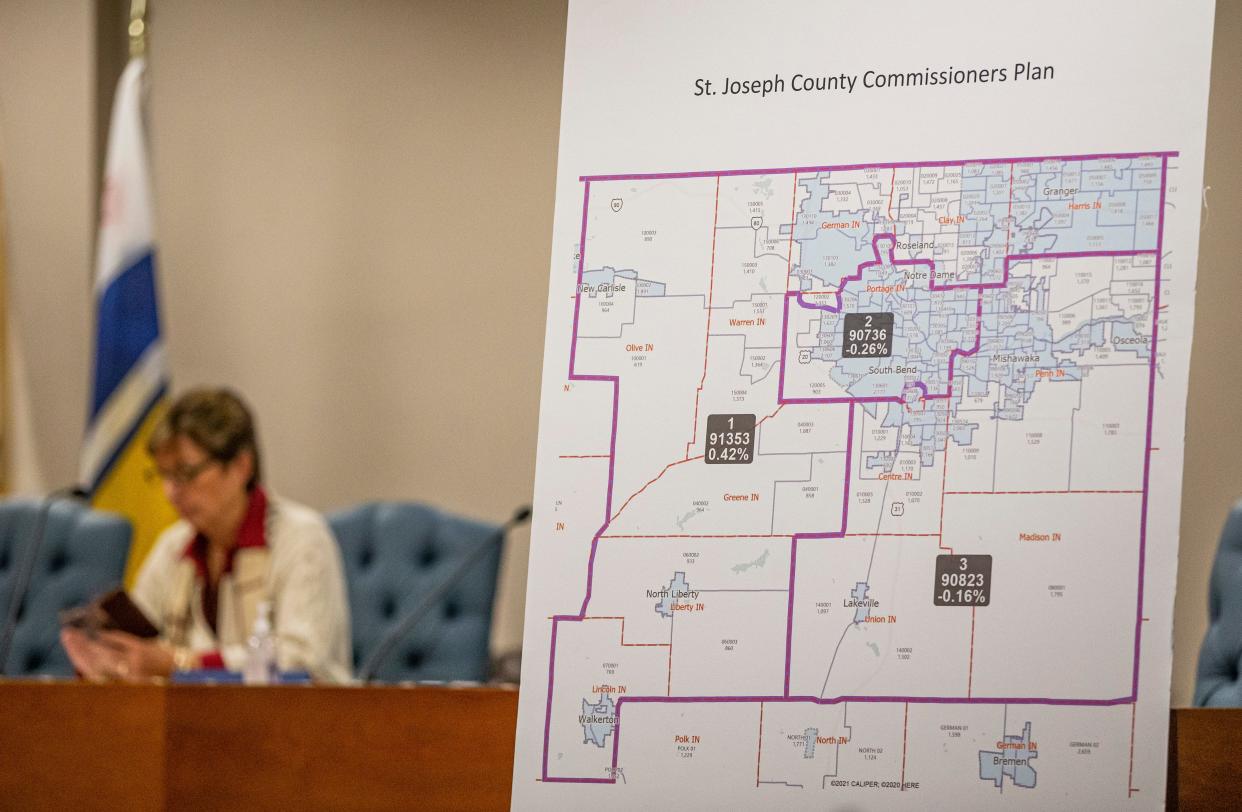St. Joseph County gerrymander is a thing of beauty, politically speaking

Politically, for what it’s designed to do, the Republican gerrymander in St. Joseph County is a beautiful thing.
Beauty, of course, is in the eye of the beholder.
For Republican political purposes, it’s a beautiful plan, designed to perfection, drastically changing the three county commissioner districts to draw one district with as much of South Bend Democratic strength as possible, making the other two very likely to be won by Republicans.
It’s aimed at providing a 2-1 Republican majority on the board of commissioners for a decade, until redistricting again in 2031, by surrendering completely one district to solidify chances of winning the other two.
It’s also calculated to prevent the Democratic-controlled County Council, as it draws its districts, from a retaliatory gerrymander to assure that at least six of the nine council members will be Democrats. Six, the present total, is needed to override a commissioner veto, such as happened when the commissioners vetoed accepting $3 million in federal funds for health purposes.
Three council districts must be drawn within each of the new commissioner districts. The way incumbent council members are situated within the redrawn commissioner districts leaves Democrats with a good chance to win only five seats.
Ugly, of course, also is in the eye of the beholder.
Democrats criticize the plan as ugly, so partisan that it even drew one formidable Democratic candidate out of the district where he planned to run. Dissent also comes from one Republican commissioner who was thrown under the bus and from good government groups advocating fairness rather than gerrymandering in drawing districts.
With all the dissent and criticism, Republican architects of the plan find it unwise to talk publicly about its political beauty.
But with gerrymandering efforts to pick voters for the wards for Chicago’s City Council, aldermen there boast about political acumen in drawing districts to help some segment of the Democratic Party.
Political boasting isn’t viewed as favorably in the eyes of voters here, so the architects of a beautiful thing politically talk of it as really aimed at guaranteeing that South Bend residents have a commissioner of their own. And that should be the case — election of a commissioner, likely a Democrat — in that district packed with South Bend Democratic precincts.
But it’s designed also to guarantee each of the two sprawling districts outside the city will have their own commissioners, most likely Republicans.
The aim of the gerrymander: South Bend’s very own commissioner could always be outvoted 2-1 by the Republican commissioners. It’s classic bundling of opposition strength. Politically, a beautiful thing.
Chicago, where political moves are transparent, not hidden, is an exception in bragging about political cunning in redistricting. Democrats and Republicans elsewhere when gerrymandering point to how close new districts are in population and how some geographic or community boundaries are maintained. With political pros, lawyers and computers, that can be done while still gerrymandering.
An unintended consequence of the St. Joseph County gerrymander is that Republican Commissioner Andy Kostielney has decided not to run for re-election in a district he helped design as safe for him.
Kostielney has had serious health problems, and the furor over the redistricting is not conducive to good health.
It’s ironic that Kostielney, now target of harsh Democratic criticism, won in the past with substantial Democratic support and often took nonpartisan stances for the good of the county. But the gerrymander designed to make him safe politically brought his political demise.
Another ironic aspect is that Republican Commissioner Derek Dieter, thrown under the bus, situated in that solidly Democratic district, was so recently hailed by Republicans as a former Democrat winning a seat for the GOP. A little collateral damage, however, doesn’t smudge the beauty, politically, of the gerrymander.
This article originally appeared on South Bend Tribune: It aims to provide a 2-1 Republican majority on the board for a decade

